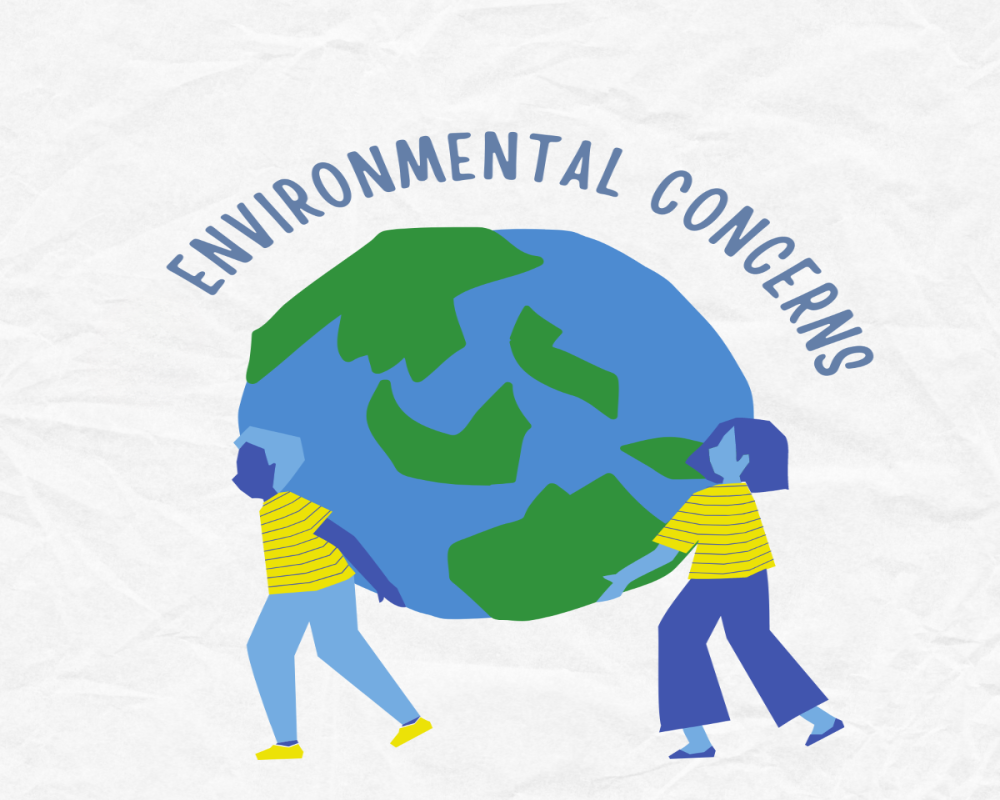Introduction
Industrial development plays a vital role in economic growth, employment generation, and technological progress. However, it also poses significant challenges to environmental sustainability. The expansion of industries—whether through large-scale manufacturing units, processing facilities, or infrastructure zones—often leads to ecological degradation if not managed responsibly. Addressing the key environmental concerns in industrial development is critical to ensuring a balance between progress and preservation. These concerns are not only regulatory in nature but also impact the health of ecosystems, communities, and future generations.
Air Pollution and Emissions
One of the most pressing environmental issues in industrial development is air pollution caused by the emission of particulate matter, greenhouse gases, and toxic substances. Industries that involve combustion, chemical processing, or material handling release pollutants such as sulfur dioxide, nitrogen oxides, carbon monoxide, and volatile organic compounds into the atmosphere. These emissions contribute to respiratory illnesses, acid rain, and climate change. Industrial clusters located near residential zones often face opposition due to deteriorating air quality, prompting regulatory action and the need for pollution control technologies.
Water Consumption and Contamination
Industrial operations require large volumes of water for processing, cooling, and cleaning, leading to the depletion of local water sources. In areas where groundwater is the primary source, over-extraction can cause aquifer depletion, reduced agricultural productivity, and conflicts with local communities. Furthermore, the discharge of untreated or inadequately treated industrial effluents into rivers, lakes, and underground aquifers poses a serious threat to aquatic ecosystems and human health. These effluents often contain heavy metals, oils, chemicals, and pathogens that violate environmental standards.
Land Degradation and Waste Generation
Industrial development often leads to land degradation through deforestation, excavation, and improper waste disposal. Construction of industrial facilities may involve clearing large tracts of natural vegetation, resulting in habitat loss and soil erosion. Solid waste from production processes, especially hazardous waste, if not managed properly, can contaminate land and leach into surrounding areas. The accumulation of industrial waste—such as slag, ash, and chemical residues—without proper containment measures leads to long-term environmental hazards.
Noise Pollution and Vibration
Industries that operate heavy machinery or conduct large-scale transportation activities generate significant levels of noise and ground vibration. Prolonged exposure to high noise levels affects the hearing, sleep, and mental well-being of workers and nearby residents. In sensitive zones, such as near schools, hospitals, or protected wildlife areas, noise pollution can be particularly disruptive, requiring implementation of noise barriers and operational restrictions.
Loss of Biodiversity and Ecosystem Disruption
Industrial zones located in or near ecologically sensitive areas can lead to the fragmentation or destruction of natural habitats. The construction of roads, pipelines, and buildings often interrupts wildlife movement, alters natural drainage systems, and impacts soil fertility. Certain pollutants may also lead to bioaccumulation in local flora and fauna, disrupting food chains and reducing biodiversity. The introduction of non-native species through industrial activities, such as port-based industries, can further threaten local ecosystems.
Climate Change and Carbon Footprint
Many industrial processes are significant contributors to greenhouse gas emissions, particularly carbon dioxide and methane. These emissions increase the global carbon footprint and contribute to global warming. Energy-intensive industries such as cement, steel, and petrochemicals are under increasing pressure to adopt cleaner technologies and renewable energy sources to reduce their environmental impact. Climate-related concerns have prompted governments and international organizations to enforce emission caps and carbon reporting protocols as part of sustainable industrial development strategies.
Regulatory Compliance and Monitoring Challenges
Industries are subject to various environmental laws and standards, including obtaining environmental clearances, adhering to emission norms, conducting environmental impact assessments (EIA), and setting up effluent treatment plants. However, lack of continuous monitoring, limited enforcement capacity, and inconsistent regulatory practices often result in non-compliance. Environmental negligence not only affects ecosystems but also leads to legal penalties, project delays, and reputational damage for industrial entities.
Conclusion
Industrial development, while essential for economic progress, must be pursued with strong awareness and management of its environmental implications. Air and water pollution, land degradation, waste management, and loss of biodiversity are among the key concerns that must be addressed through proactive planning, cleaner technologies, and strict regulatory compliance. By integrating environmental safeguards into every stage of industrial planning—from site selection to waste disposal—industries can contribute to sustainable development. Balancing growth with environmental responsibility is not only a legal necessity but a moral and economic imperative for long-term viability and public well-being.
Hashtags
#EnvironmentalConcerns #IndustrialDevelopment #SustainableIndustry #PollutionControl #ClimateChange #ResourceDepletion #BiodiversityLoss #WasteManagement #GreenTechnology #EcoFriendlyPractices #SustainableDevelopment #AirQuality #WaterConservation #RenewableEnergy #CarbonFootprint #EnvironmentalImpact #CorporateResponsibility #EcoInnovation #SustainableFuture #CleanIndustry


